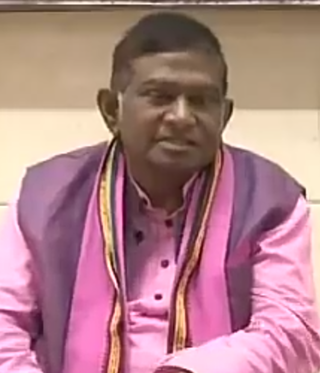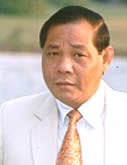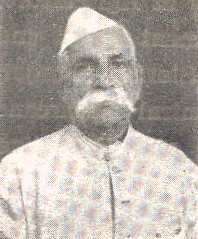Politics of India works within the framework of the country's Constitution. India is a parliamentary secular democratic republic in which the president of India is the head of state & first citizen of India and the Prime Minister of India is the head of government. It is based on the federal structure of government, although the word is not used in the Constitution itself. India follows the dual polity system, i.e. federal in nature, that consists of the central authority at the centre and states at the periphery. The Constitution defines the organizational powers and limitations of both central and state governments; it is well recognised, fluid and considered supreme, i.e. the laws of the nation must conform to it.

The Indian National Congress (INC), colloquially the Congress Party or simply the Congress, is a political party in India with deep roots in most regions of India. Founded on 28 December 1885, it was the first modern nationalist movement to emerge in the British Empire in Asia and Africa. From the late 19th century, and especially after 1920, under the leadership of Mahatma Gandhi, the Congress became the principal leader of the Indian independence movement. The Congress led India to independence from the United Kingdom, and significantly influenced other anti-colonial nationalist movements in the British Empire.

Feroze Gandhi was an Indian freedom fighter, politician and journalist.

Ajit Pramod Kumar Jogi was an Indian politician, who has served as the 1st Chief Minister of Chhattisgarh from 2000 to 2003 and a member of the Chhattisgarh Legislative Assembly from Marwahi from 2018 to 2020 and from 2001 to 2013. He also served as a member of Lok Sabha from Mahasamund from 2004 to 2008 and from Raigarh from 1998 to 1999 and member of Rajya Sabha from Madhya Pradesh from 1986 to 1998 and district collector of Raipur in Office from 1978 to 1981. He was a member of Indian National Congress till 2016 and the founder of the political party named Janta Congress Chhattisgarh and the 1st President of the party from 2016 till he died in 2020.

Sharadchandra Govindrao Pawar is an Indian politician. He has served as the Chief Minister of Maharashtra for four terms and has also served in the Union Council Of Ministers as the Minister of Defence in the Cabinet of P.V Narsimha Rao and Minister of Agriculture in the Cabinet of Manmohan Singh. He is the first and former president of the Nationalist Congress Party (NCP), which he founded in 1999, after separating from the Indian National Congress. His NCP was split by his own nephew, Ajit Pawar. He leads the his facation NCP delegation in the Rajya Sabha, the upper chamber of the Indian parliament. He is the chairperson of Maha Vikas Aghadi, a regional Maharashtra-based political alliance.

Purno Agitok Sangma was an Indian politician who has served as the 4th Chief Minister of Meghalaya from 1988 to 1990 and the 11th Speaker of the Lok Sabha from 1996 to 1998. He also served as a member of the Lok Sabha from Tura from 2014 to 2016, 1991 to 2008 and from 1977 to 1989 and the minister of 21st Information and Broadcasting in the Rao ministry from 1995 to 1996, founder of NPP and Co- founder of NCP. He was the candidate for the 2012 Indian presidential election, supported by BJP and AIADMK, however he lost to Congress politician Shri Pranab Mukherjee. He was awarded the Padma Vibhushan, India's second highest civilian award, posthumously in 2017 in the field of Public Affairs and was the first recipient of Padma Vibhushan from Meghalaya.

Jivatram Bhagwandas Kripalani, popularly known as Acharya Kripalani, was an Indian politician, noted particularly for holding the presidency of the Indian National Congress during the transfer of power in 1947 and the husband of Sucheta Kripalani. Kripalani was an environmentalist, mystic and independence activist who was long a Gandhian socialist, before joining the economically right wing Swatantra Party later in life.

Bansi Lal Legha was an Indian independence activist, senior Congress leader, Chief Minister of Haryana, former Defence Minister of India, and the architect of modern Haryana. Bansi Lal was part of the famous Lal trio of Haryana which also included 'Tau' Devi Lal and Bhajan Lal, that form the major Political families of Haryana.

Paramasivan Subbarayan was an Indian politician, freedom fighter and diplomat and was the First Minister of Madras Presidency, India's ambassador to Indonesia and Union Minister of Transport and Communications in Jawaharlal Nehru's government. He was the father of General P. P. Kumaramangalam, who served as India's Chief of Army staff, and of politician Mohan Kumaramangalam. He was also the grandfather of INC and BJP politician and Union Minister Rangarajan Kumaramangalam.

Manikrao Hodlya Gavit was an Indian politician from Nandurbar district of Maharashtra, India. A member of the Indian National Congress (INC), he represented the Nandurbar constituency from 1980 to 2014, winning the Indian general elections consecutive nine times, marking a record.

General elections were held in India between 25 October 1951 and 21 February 1952, the first after India attained independence in 1947. Voters elected the 489 members of the first Lok Sabha, the lower house of the Parliament of India. Elections to most of the state legislatures were held simultaneously.
The Kisan Mazdoor Praja Party, or Praja Party for short, was a political party of India. Established in 1951, it merged with the Socialist Party to form the Praja Socialist Party in the following year. The Andhra unit of the party, however, revived the old party under the name "Praja Party" and lasted for a few more years.

Ashokrao Shankarrao Chavan is an Indian politician from Maharashtra. He is son of ex-Maharashtra Chief Minister Shankarrao Chavan. He was one of the most influential leaders of Indian National Congress in Maharashtra but later resigned and joined Bhartiya Janata Party on 13 Feb 2024. He has served as the Chief Minister of Maharashtra state from 8 December 2008 to 9 November 2010. Also, he has served as Minister for Cultural Affairs, Industries, Mines and Protocol in the Vilasrao Deshmukh government and he is also the former PWD Minister of Maharashtra.

Kodikunnil Suresh is an Indian politician and Congress Working Committee Member. He is the working-president of the Kerala Pradesh Congress Committee (KPCC). He is the chief Whip of Congress Parliamentary Party in Loksabha.He was a former Union Minister of State for Labour and Employment. He is a member of the seventeenth Lok Sabha representing Mavelikara in Kerala. He has been a member of Lok Sabha for seven times.He is also served as the Secretary of the All India Congress Committee (AICC).
Vazhappady K. Ramamurthy or Vazhapadi K. Ramamoorthy was an Indian trade unionist and politician.
Ram Krishna Sinha was an Indian freedom fighter, politician and Member of Parliament of India. He was a member of the 4th and the 5th Lok Sabhas of India. Sinha represented the Faizabad constituency of Uttar Pradesh and was a member of the Congress political party.

Lala Achint Ram was an Indian freedom fighter, Gandhian and a member of the Indian National Congress party.
Uddaraju Ramam was an Indian politician. He was a parliamentarian and a leader of peasants movement. He has three sons and two daughters,

Minimata Agam Das Guru was an Indian politician from the Indian National Congress Party, and a member of parliament in the First, Second, Third, Fourth, and Fifth Lok Sabha.

Nidemane Somana was an Indian politician and lawyer. He was an Indian National Congress leader in Coorg State and served as the Member of Parliament for the state in the first legislature after the independence of India.















